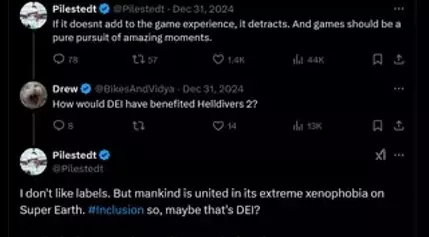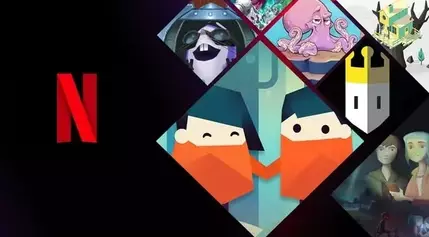Clarifying Intent: The True Message Behind the Statements
The discourse surrounding video games often reflects broader cultural debates. When Johan Pilestedt made his initial comments about avoiding "contemporary political statements" in games, it raised eyebrows. After all, Helldivers 2 is a game steeped in political satire, drawing parallels to fascism and authoritarian regimes. Pilestedt's clarification that he was referring to commentary "outside the theme of the game" attempted to bridge this gap. However, the underlying tension remains evident. The disconnect between his words and the game’s overtly political nature invites deeper scrutiny into the role of developers in shaping societal narratives through their creations.
Understanding this context is crucial. Pilestedt’s clarification suggests a nuanced view, emphasizing that while the game itself can be political, external commentary should not overshadow its core experience. This distinction underscores a broader debate within the industry: Should games stand as isolated entertainment or serve as platforms for social commentary? The answer lies in the balance between artistic expression and audience reception.
Political Satire in Gaming: A Historical Perspective
Gaming has long been a medium for exploring and critiquing societal norms. Games like Helldivers 2, with its satirical take on fascism, are part of a rich tradition. Titles such as Starship Troopers and Wolfenstein have similarly delved into political themes, offering players a lens through which to examine real-world issues. The effectiveness of these games lies in their ability to blend entertainment with thought-provoking content. In this light, Pilestedt’s comments appear at odds with the very essence of what makes Helldivers 2 impactful.
The historical significance of political satire in gaming cannot be understated. These titles challenge players to think critically about the world around them. They invite discussions that extend beyond the virtual realm, fostering a deeper understanding of complex issues. By examining how past games have navigated these waters, we gain insight into the evolving role of developers in shaping cultural conversations.
The Impact of Online Discourse on Game Development
The digital age has transformed how developers engage with their audiences. Platforms like X (formerly Twitter) provide direct lines of communication, but they also amplify voices that may not always align with the developer’s vision. Pilestedt’s experience exemplifies this duality. While some users praised his stance against contemporary political statements, others criticized him for what they perceived as a contradiction. This divide highlights the challenges developers face in navigating public opinion.
Online discourse can be a double-edged sword. On one hand, it offers valuable feedback and fosters community engagement. On the other, it exposes developers to criticism and misinterpretation. Pilestedt’s mention of cancel culture further complicates the narrative. It reflects a broader conversation about the impact of online interactions on creative freedom. Developers must find ways to engage constructively while maintaining their artistic integrity.
Comparative Insights: Other Developers’ Stances on Political Themes
To better understand Pilestedt’s position, it’s useful to compare it with other notable figures in the industry. Pete Hines, former PR chief at Bethesda Softworks, openly embraced the anti-Nazi message of Wolfenstein. His statement that “Nazis are bad” resonated strongly with both players and critics. This approach contrasts sharply with Pilestedt’s more cautious stance. Hines’ willingness to address contemporary issues head-on demonstrates a different philosophy—one that sees games as vehicles for meaningful dialogue.
This comparison reveals varying approaches to handling politics in gaming. Some developers choose to integrate social commentary directly into their work, while others prefer to keep it separate. Neither approach is inherently right or wrong; rather, they reflect differing perspectives on the role of games in society. Pilestedt’s clarification attempts to straddle this divide, acknowledging the importance of thematic elements while cautioning against overreach.
Navigating the Future: Balancing Creativity and Social Responsibility
As the gaming industry continues to evolve, developers must navigate the delicate balance between creativity and social responsibility. Pilestedt’s journey from initial statement to clarification illustrates the complexities involved. Developers are increasingly aware of the power their creations hold in shaping public perception. This awareness brings both opportunities and challenges.
The future of gaming will likely see more discussions around the intersection of art and politics. Developers who successfully navigate this terrain can create experiences that resonate deeply with players. Pilestedt’s experience serves as a reminder that clear communication and thoughtful consideration are key to addressing these multifaceted issues. Ultimately, the goal should be to foster environments where creativity thrives alongside meaningful engagement with the world around us.




















